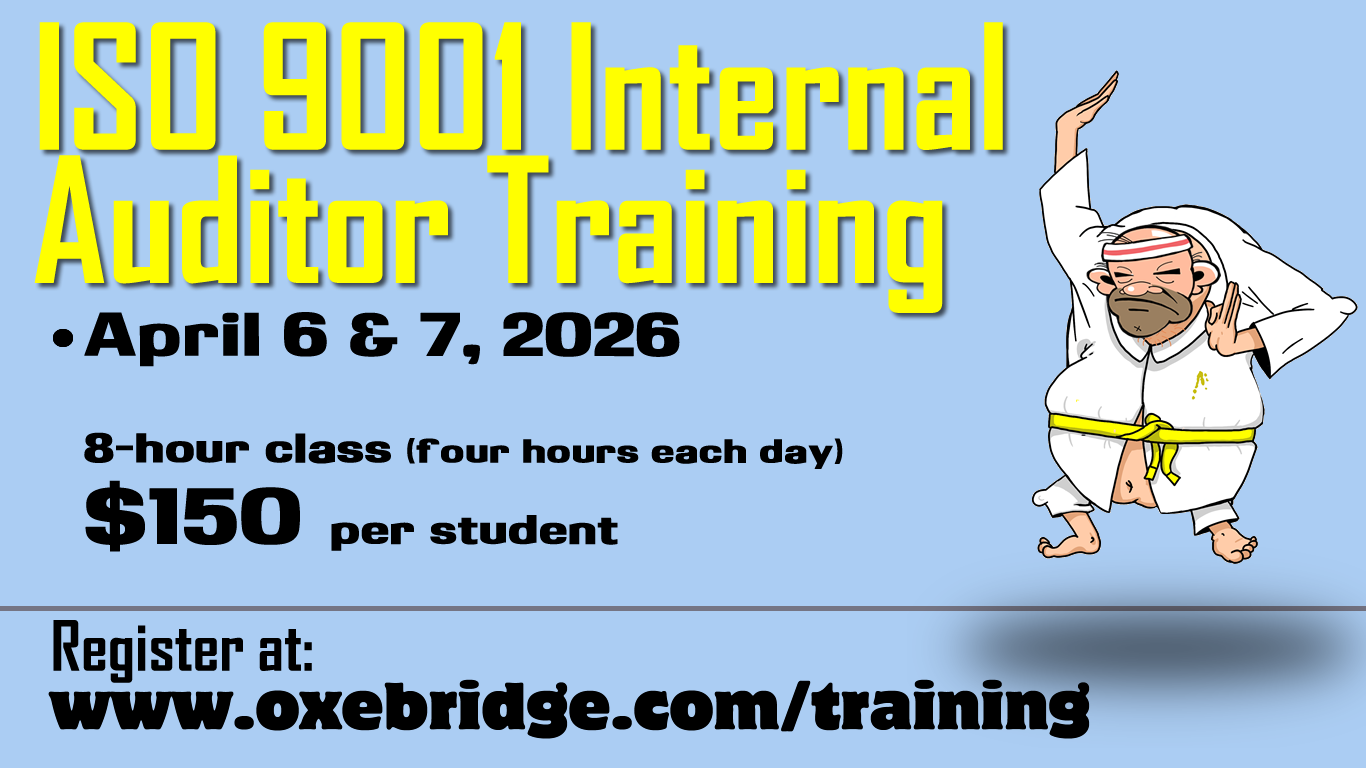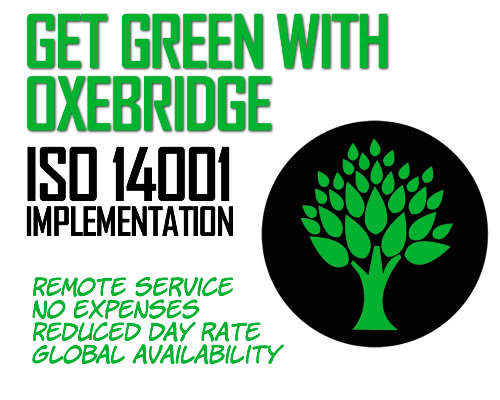ANAB and the accreditation bodies are only one player in the ISO 9001 ecosystem. They, along with the International Accreditation Forum (IAF) are probably in the best position to do the most good in the shortest time, due to their power in the industry, but this doesn’t alleviate the responsibilities of other parties. Let’s take a look at what ISO consultants can do to help save their profession.
1. DON’T SCAM
You’d be surprised at the number of consultants that have under-the-table deals with specific registrars (and vice versa.) In exchange for a favorable audit result, the consultant steers his clients to a specific auditor. This is a cancer on the validity of ISO 9001, as it ensures that rotten companies attain ISO 9001, and keeps rotten auditors working. Of course the rotten consultants are unlikely to take this advice — they’re rotten, after all — but sometimes a new consultant will consider this as a viable business model without thinking it through. Hopefully, with this article, I can catch those guys before they start down this path.
2. ACTUALLY BE AN EXPERT
Too many ISO consultants claim to be experts on standards they know little about. They throw everything on their website, and wait for the random bid to come in, and then scramble to research the standard when they get a bite. They claim to be experts in risk management, process approach, Lean, and a slew of abbreviated “qualitish” words like FMEA, CAPA, DMAIC, and RCA, but may never have had any training or practical experience with them.
I’ve also found that the quality consulting profession is populated by an overabundance of people who have previously failed in another industry. Many consultants hung their shingle because they were fired, dumped or otherwise laid off. Being terminated does not make you qualified as an expert in anything other than being terminated. Too many view quality as an easy profession that anyone can do, like Amway or dressing like the Statue of Liberty and waving a sign on the corner for an insurance company. It’s a bit more complicated than that.
You won’t fool the client when you cannot deliver on the promise of being an expert. Know your strengths and focus on those. Don’t offer services for which you aren’t actually an expert. Don’t be an ISO 9001 consultant unless you actually have ISO 9001 implementation experience. Being an internal auditor doesn’t count.
3. KILL THE TEMPLATES
It’s easy to make a document set once, and then cut-and-paste every new client’s name into the documents. It’s fast and you get to bill for hours of work you never did. But “boilerplate” documents also fail audits, because they don’t actually reflect what a client’s company does, nor its unique culture. Clients who fail audits because of inept consulting not only will not refer the consultant (cutting off a free source of referrals), but walk away from the ISO 9001 experience with the belief that the entire thing is a scam created by con artists.
4. STOP NICKEL AND DIMING
I’ve written about this in detail here, but clients are repulsed by consultants who bill for every possible thing they experience during a contract period — hotel water, packs of gum from the gas station, tolls, meals. This perpetuates the belief that consultants are one shade of gray from the used car salesman, tricking customers any way possible to get another buck. It pollutes the profession, and the reputation of ISO 9001 itself.
5. DEDICATE YOURSELF TO CONSULTING, NOT AUDITING
Many auditors are failed consultants. (You can test this. Ask your CB auditor if he also does consulting. See what he says.) However, the opposite is also true: many consultants don’t succeed quickly at building a consulting practice, so they fill their free time by working for a registrar. This creates a host of problems, but primarily it takes the consultant’s attention off of improving his consulting experience. Registration audits suck up time which could be used in consulting services, and prevent the consultant from having the flexible schedule needed by some consulting clients.
It also ensures that the consultant is only building his experience on the point of view of the registrar, and not that of the ISO 9001 end user. This creates a skewed view of implementing ISO 9001, as the auditor/consultant will become obsessed with implementing in order to satisfy auditors, rather than focusing on the needs of a client (which will often be contradictory to those of an auditor.) This, then, results in cookie-cutter quality systems that pass audits, but provide little value to customers, who drop certification a few years later when it fails to generate revenue.
Christopher Paris is the founder and VP Operations of Oxebridge. He has over 35 years’ experience implementing ISO 9001 and AS9100 systems, and helps establish certification and accreditation bodies with the ISO 17000 series. He is a vocal advocate for the development and use of standards from the point of view of actual users. He is the writer and artist of THE AUDITOR comic strip, and is currently writing the DR. CUBA pulp novel series. Visit www.drcuba.world








